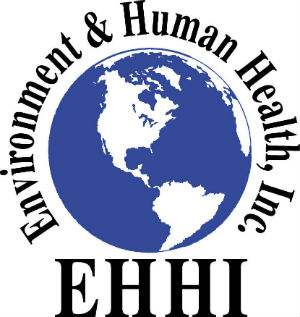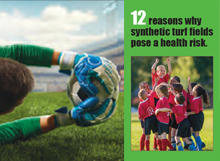Environment & Human Health (EHHI) is dedicated to protecting human health from environmental harms through research, education and the promotion of sound public policies.
Reports to Promote Policy Changes
States Need Bottle Bills
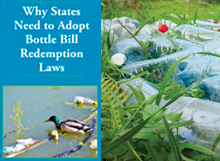
Most beverage bottles today are plastic, and Americans use about 425 beverage containers per person per year. For plastic water bottles, only 30% get recycled and 70% end up in landfills, oceans, as litter, or get incinerated.
States with bottle bills have a higher rate of return for empty beverage containers that are redeemable.
Plastics and Microplastics
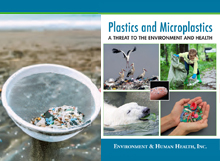
Plastics are ubiquitous. About 380 million tons of plastic are produced each year. The more scientists learn about plastic pollution, the more serious the problems are shown to be for the environment and the health of all living things.
EHHI is calling for sweeping policy initiatives to better protect the public from harmful exposures.
Pesticide Risks
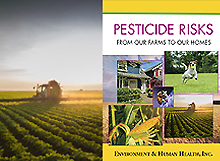
Pesticide Risks: From Our Farms to Our Homes. Government has failed to demand full and independent testing prior to pesticide approval. Regulators have often bowed to corporate and political pressure despite clear evidence of health risks.
See recommendations for the federal government, states, towns, and individuals.
Wood Smoke Exposures
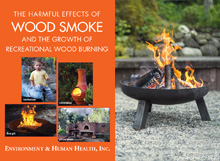
Wood smoke poses a serious danger to human health. Summer wood burning has increased over the past 25 years, with people using backyard fireplaces, fire pits, chimineas, and outdoor cooking appliances.
EHHI issued a WOOD SMOKE UPDATE to help individuals being harmed by neighbors' smoke. See "more info" below.Synthetic Turf
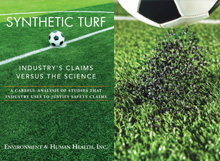
EHHI is increasingly concerned about health hazards associated with exposures to ground-up recycled tires (crumb rubber) used as in-fill in synthetic turf fields and playgrounds.
EHHI has carefully read and analyzed numerous studies that industry uses to justify safety claims.
Flame Retardants
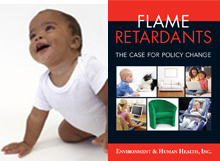
Found in almost all consumer products, flame-retardants pose special health risks for fetuses, infants, and children.
EHHI recommends sweeping policy changes to protect the public from flame-retardants.
more infoOutdoor Wood Furnaces
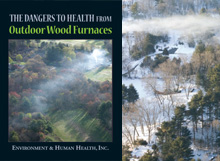
Read how outdoor wood furnaces cause respiratory problems and adverse health effects in neighboring homes.
What should you do when your neighbor's smoke comes onto your property and into your home?
more infoAsthma in Children
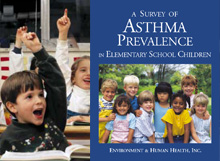
Asthma is a chronic disease that affects growing numbers of children and adults in the United States.
EHHI surveyed school nurses in grades K-5 to assess asthma prevalence among school children in Connecticut. more infoThe LEED Debate
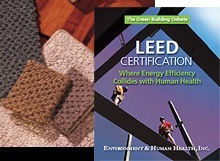
Do “green” buildings protect human health from environmental hazards? The answer is “not necessarily.”
Find out where energy efficiency collides with human health.
more infoSchool Bus Exhaust
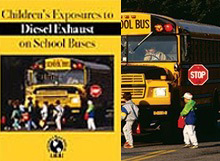
Most U.S. school buses generate diesel exhaust composed of very fine particles of carbon and a mixture of toxic gases.
EHHI urges states to adopt no-idling laws for school buses (see the Connecticut legislation).
more infoCell Phones

EHHI’s report explores what we know about cell phone use, technology, and health effects. Exposures to electromagnetic radiation are happening in ways never dreamed of before.
What do cell phone exposures mean for human health? more infoPesticides in Private Wells
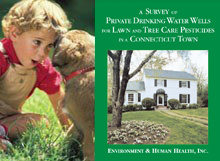
Lawn and tree care pesticides can filter down through the soil and enter residential drinking water wells, even deep wells.
EHHI calls for testing of private wells.
more infoVehicle Exhaust
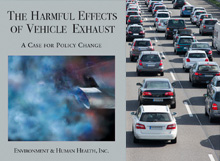
Although the smell of vehicle exhaust is a normal part of everyday life, our nation is experiencing an epidemic of illnesses made worse by air pollution.
The U.S. Environmental Protection Agency does not sufficiently protect air quality.Breast Cancer

Read how women's ideas about their breast cancer risks compare with the actual science.
Learn what environmental and lifestyle factors are linked to increased breast cancer risks.
more infoPesticides
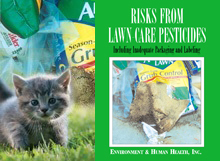
Pesticides are intentionally toxic substances linked to cancer, birth defects, mutations and other health problems.
Children, infants, and fetuses may be especially vulnerable to adverse health effects.
more infoBrochures that Protect the Public's Health
Roundup Dangers
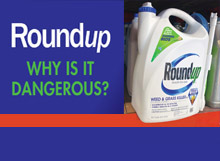
Roundup is the the trade name for the weed-killer glyphosate. Glyphosate has been deemed a probable carcinogen by the World Health Organization (WHO).
more infoAbout us
Environment and Human Health, Inc. (EHHI) is a ten-member, science-based non-profit organization composed of physicians, public health professionals and policy experts dedicated to protecting human health from environmental harms through research, education and the promotion of sound public policies.
The EHHI Board
more info
Sign-Up
I would like to be on the daily email list which receives a new study or newspaper article about environment and human health each morning.
EHHI's eJournal
News reports and articles related to EHHI's research reports on health and the environment.

